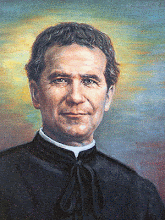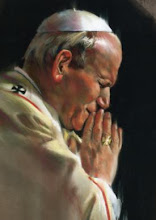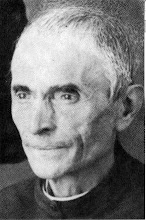Holy Week is the most sacred time of the Christian year. And on every Holy Thursday, priests of the archdiocese gather at the annual Chrism Mass to renew their fraternal bonds and the meaning of their vocation.
The readings of the Chrism Mass have a special beauty and power, and they deserve the attention of all the faithful, not just our priests:
First reading: Is 61:1-3a, 6a, 8b-9
Second reading: Rev 1:5-8
Gospel: Lk 4:16-21
The Bible has dozens of dramatic moments, but the one that arguably matters most is the last line of the Chrism Mass Gospel: “Today, this Scripture passage is fulfilled in your hearing.” If human history has a center, this is it. If Scripture has a direction and meaning, this is it. All of God’s contact with humanity either leads up to this point, or flows from it. As C.S. Lewis once famously observed, in speaking these Gospel words Jesus is either stating a fact, or he’s blaspheming, or he’s mentally ill. There’s no middle ground. And the people in the synagogue who heard him say the words, understood this very well — which is why they tried to assault him.
Christ’s radical claim requires a radical response. The apostles who followed him reconfigured their lives and risked or gave away all that they owned. Joy and fruitfulness come from this kind of discipleship, but very little comfort. Faith is not a leisure activity. And it may become even less so in the years ahead as many people forget their religious roots and drift away from the Church as their home.
Living the Catholic faith, for every committed Christian, is a life of conscious focus and sacrifice. But for priests, whom Christ configures to himself through ordination, this is especially true. The priesthood is a “helping profession” only in the sense that it “helps” to have someone around who’s willing to live, serve, intercede, suffer and die on our behalf. Jesus lived and died for all of us. In like manner, priests are called to live and die for their people in his name. Otherwise the priesthood means nothing.
The lives of our priests have a purpose that no one else can fulfill. As Isaiah reminds priests in the Chrism Mass readings, “God has anointed” them. Anointing is the outward physical mark of a permanent, interior covenant. Priests have a mission to which they must conform their lives; a mission to heal the wounded; offer real and enduring freedom to their people; to comfort the suffering, to restore gladness and glory to those who mourn.
The people who carried the Catholic faith forward in history, who made the culture of beauty, music, art and architecture rooted in the Christian understanding of God and humanity – these generations were taught, spiritually fed, and shaped by priests exactly like the men who minister to us in our local Church. Where there is Catholic faith anywhere in the world, it exists because priests offered their lives for the sake of Jesus Christ and the people God called them to serve.
The crisis of our time is not finally a crisis of resources or personnel or intelligence or talent. God has given us enough of all these things, if we steward them with prudence.
Rather, what too many people lack today is faith. Unbelief is easy, like adultery in a marriage where the spouses have stopped cultivating their love out of indifference or resentment. But it leads nowhere, because faith is the only firm foundation for human hope.
Fidelity can be difficult. But it leads in the opposite direction – to meaning, hope and life. And priests play an irreplaceable role in strengthening the faith of the Christian people.
This Holy Week, as we remember Christ’s suffering on the cross and ready ourselves for the joy of the Resurrection, please also remember our priests. They need our love and support as brothers in the Lord’s work. Thank God for them. Pray for them in a special way. The bond of Christian people and their priests is the strength of the Church in a skeptical world that has never needed the Word of God more urgently.























